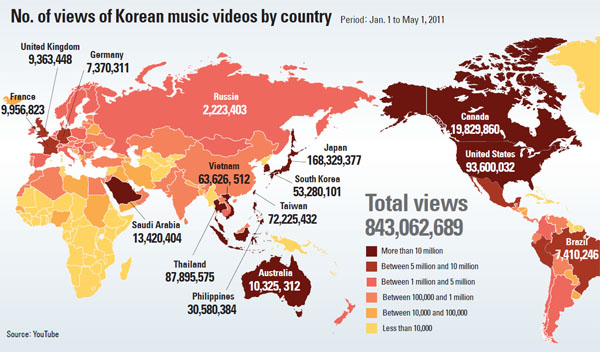The Global Phenomenon of K-Pop Business
K-Pop, short for Korean Pop, has become a global cultural phenomenon in recent years. With its catchy music, stunning visuals, and captivating performances, K-Pop has transcended geographical boundaries to capture the hearts of millions of fans worldwide. However, beyond the music and entertainment aspect, K-Pop is also a thriving business with multiple revenue streams. This article explores the dynamic world of K-Pop business, delving into its origins, key players, and the strategies that have contributed to its extraordinary success.

Origins and Growth
K-Pop’s roots can be traced back to the early 1990s when South Korea’s entertainment industry began to experiment with pop music. However, it was in the late 2000s and early 2010s that K-Pop experienced an explosive global surge in popularity. Social media and video-sharing platforms, such as YouTube, played a pivotal role in exposing K-Pop to international audiences, enabling fans from different parts of the world to discover and share their favorite music videos and performances.
Key Players in the K-Pop Business
The K-Pop business is primarily dominated by entertainment agencies, which scout, train, and manage the talented artists. Some of the most prominent entertainment agencies in South Korea include SM Entertainment, YG Entertainment, JYP Entertainment, and Big Hit Entertainment (now known as HYBE Corporation). These agencies invest significant resources in developing their artists’ skills, visuals, and personalities, creating polished and well-packaged idols.
Diverse Revenue Streams
The success of K-Pop as a business can be attributed to its diverse revenue streams. While album sales and music streaming are vital sources of income, K-Pop agencies have expanded their business models to include various other avenues, such as concerts, merchandise sales, endorsements, reality shows, and fan meetings. Additionally, the global popularity of K-Pop has led to a rise in international tours, attracting fans from different countries and contributing significantly to the industry’s revenue.
Fandom Culture and Fan Engagement
One of the distinctive features of K-Pop’s business model is the intense fan engagement and loyalty cultivated by the entertainment agencies. Fandom culture plays a crucial role in promoting K-Pop idols and their activities. Fans actively participate in online communities, fan clubs, and social media platforms to support and promote their favorite idols. Entertainment agencies capitalize on this fan enthusiasm by organizing fan events, fan meetings, and fan merchandise sales, creating a sense of belonging and emotional connection between the idols and their fans.
Global Collaborations and Cross-Cultural Appeal
K-Pop’s business success is also fueled by its ability to collaborate with international artists and appeal to diverse audiences. Many K-Pop acts release English versions of their songs or collaborate with Western artists, tapping into the global music market. K-Pop’s fusion of various musical styles, impressive choreography, and eye-catching visuals appeals to a wide range of audiences, breaking cultural barriers and garnering fans from different backgrounds.
Challenges and Future Prospects
Despite its global success, the K-Pop business faces various challenges, including intense competition, managing the mental and physical well-being of artists, and addressing issues related to privacy and sasaeng fans. Additionally, the COVID-19 pandemic brought about disruptions in live events and tours, prompting agencies to explore new ways of engaging with fans through virtual concerts and online content.
Conclusion
The K-Pop business is a remarkable example of how a cultural phenomenon can evolve into a thriving global industry. With its talented artists, dedicated fandom, innovative marketing strategies, and cross-cultural appeal, K-Pop continues to reach new heights and expand its influence beyond Korea’s borders. As the industry continues to evolve, it will be fascinating to see how K-Pop adapts to new challenges and opportunities, solidifying its position as a major player in the global entertainment landscape.